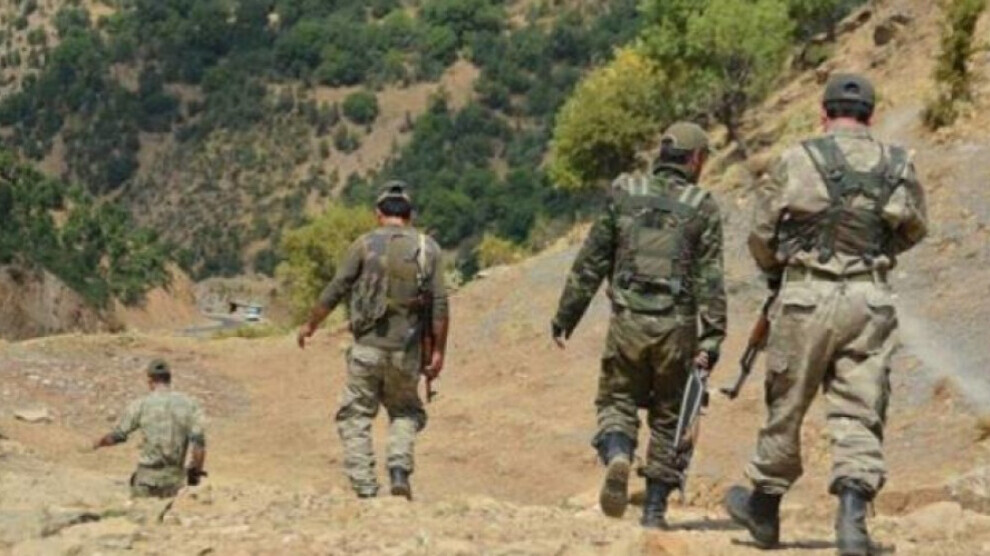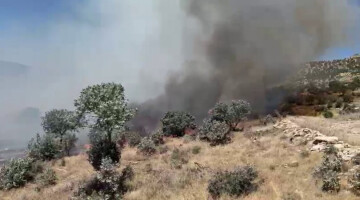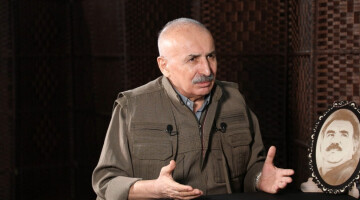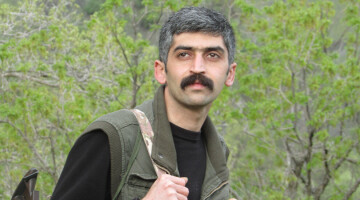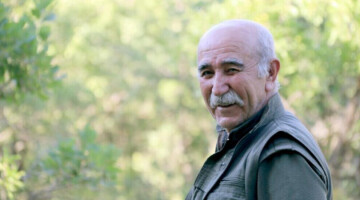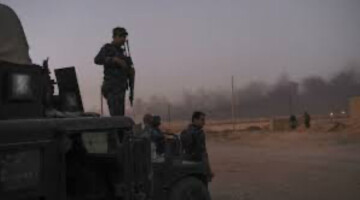The Kurdistan Freedom Guerrillas are fighting for the freedom of the people and the land of Kurdistan. Therefore, they are the guardians of the gains of the Kurdish people. Especially in the current period when the attacks are very severe, the guerrillas are giving the necessary response to the invaders. In the current war, the Turkish state relies on the technical support of the hegemonic powers, the support of traitors such as the Barzani family, and the village guards and counter-guerrillas.
When we look at the general history of the Turkish state's war against the Freedom Movement, we see these facts very clearly. The Turkish state is fighting over these points and wants to come to a conclusion in this way. However, the guerrilla forces do not allow these plans of the invaders to be realised. It is clearly seen from the current operations in the South Kurdistan (North Iraq) regions that the Turkish state is in a very big deadlock. For this reason, it wants to attack the guerrillas by using the village guards and perpetuate its sovereignty in the region. Still, all this did not prevent their plans from coming to naught.
The occupying state wants to have Kurds killed by Kurds by putting forward village guards in Kurdistan. With this method, it dreams of destroying the Kurdish people and the Kurdistan Freedom Movement. Because in almost all the occupation operations, the village guards engage in clashes in front of the Turkish soldiers. Especially in Bakûr (North Kurdistan), they cannot take a step in the guerrilla areas without village guards. The Freedom Movement frequently warns these village guards not to participate in operations and not to spill the blood of the children of the Kurdish people. Therefore, in this war in the guerrilla areas, the village guards attack the guerrillas more than the soldiers of the Turkish state. Many village guards are fighting against the guerrillas both because of threats and because they are afraid to give up their weapons. For a buck or two, these village guards fight against the freedom movement, trampling on their honour and dignity and becoming a disgrace to their society.
Guerrillas are fighting a tough war in many areas of Kurdistan, especially in the Zap and Metina regions. The guerrillas fighting for their people and lands recognise no obstacles. Against AKP-MHP fascism, against collaborators and traitors such as the Barzani family, that is, anyone who advances on the guerrilla position disguised as a Turkish soldier gets their share of guerrilla attacks. It is possible to see in many ways how the Turkish state struggles with the guerrilla resistance. There is no doubt that the guerrillas have the upper hand in this war. There is no way and method that the Turkish state has not applied in the Medya Defence Zones in the past three years. Despite the warnings of the Freedom Movement, the village guards participate in the operations in the Metina and Zap regions and advance on the guerrilla positions. As in this war, many Turkish soldiers have been killed and wounded, and many village guards who participated in these attacks also get their share of guerrilla attacks. Now the gangs are fighting against the guerrilla in the field, disguised as Turkish soldiers.
When the guerrillas see an attack or movement by those wearing those clothes, they immediately intervene and defend themselves. Otherwise, guerrillas would never use weapons against the village guards unilaterally. The guerrillas did not attack the village guards in their villages. But the village guards who work with the Turkish state in the Southern Kurdistan region, who wear the uniform of the Turkish military, become the soldiers of the fascist state. Therefore, we should know that the guerrillas are not deliberately targeting the village guards, but the guerrillas themselves are being targeted. In the recent guerrilla actions, Necmettîn Menteş, a village guard from Bitlis who participated in the Zap and Metina operations, was seriously wounded by guerrilla strikes, hospitalised and had one of his legs amputated. Again, in the Metina and Zap regions, 3 village guards from Idil in Şırnak were targeted by the guerrillas. Since the Turkish state cannot advance on its own, it asks the village guards to lead its heartless soldiers.
Just as the Turkish state hides the deaths and injuries of its soldiers, they also hide the deaths and injuries of the village guards from the public. They bury them without anyone noticing, put some money in the pockets of their families and silence them. This shows that the village guards have no value in the eyes of the Turkish state, they only use them for their own interests. And the Turkish state does not care about the death of the village guards. The village guards who play the Turkish state's game and fight against the guerrillas are no different from the Turkish soldiers. Anyone who uses weapons against the gains of the Kurdish people, who advances on the guerrilla position wearing the clothes of the enemies of the Kurdish people, is the enemy of the guerrilla, the enemy of the Kurdish people. They pay for this with their lives. The guerrillas have once again shown that no one can prevent the victory and liberation of Kurdistan.
Village guards
Village guards are paramilitary units used in Kurdistan against guerrillas and unwelcome opposition members. They consist, to a considerable extent, of tribal leaders, large landowners, families, and individuals who have often worked with the state for decades in an attempt to advocate for the state's interests in Kurdistan. Some of the village guards join this system voluntarily, while others are threatened with murder, arrest, and expulsion and must become village guardians under pressure. The Hamidiye regiments in the Ottoman Empire are considered the historical model of the village guards. Today's village guard system came into being in 1985, a year after the Kurdistan Workers' Party (PKK) launched its armed struggle. At that time, the Turkish government under Turgut Özal began recruiting and arming Kurdish tribes and clans in the war against the PKK. Thousands of Kurdish villages that rejected the village guard system were burned and razed to the ground by the state in the 1990s.

